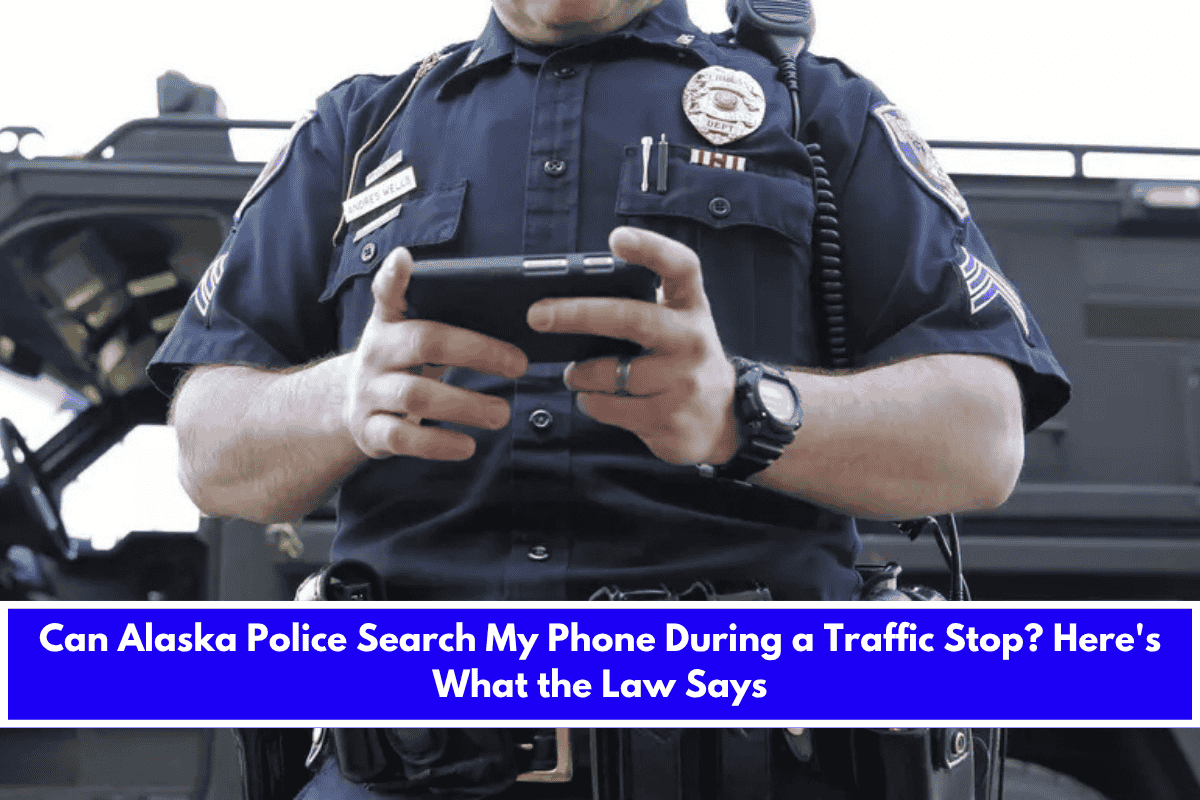Alaska police generally cannot search your phone during a traffic stop unless they have a warrant or you give them your consent. This is consistent with both federal law and Alaska state law, as well as significant U.S. Supreme Court rulings.
Legal Standards for Phone Searches in Alaska
- Warrant Requirement: Police must obtain a warrant to search the contents of your phone, even during a traffic stop or after an arrest. The Supreme Court case Riley v. California (2014) established that cell phones are protected under the Fourth Amendment, and a warrant is required to search their digital contents, except in very limited circumstances.
- Consent Exception: If you voluntarily consent to a search of your phone, police may search it without a warrant. You are not required to give consent, and you can clearly state that you do not consent to a search.
- Search Incident to Arrest: Police may seize your phone during an arrest, but they still need a warrant to access its contents, unless there is an immediate threat that evidence will be destroyed.
- Biometric Unlocking: Police cannot force you to unlock your phone using your fingerprint, face, or other biometric data without your consent or a warrant that specifically authorizes them to compel such an action.
- Border Exception: At the U.S. border, including Alaska’s international ports of entry, customs officials have broader authority to search electronic devices without a warrant.
What You Should Know During a Traffic Stop
- You Have the Right to Refuse: You are not obligated to unlock or hand over your phone to police unless they have a warrant.
- Police Can Ask, But Not Demand: Officers may ask for your consent to search your phone, but they cannot use your refusal as evidence of guilt or as a reason to detain you further.
- Physical Search vs. Digital Search: Police may be able to pat you down for weapons or look at the exterior of your phone, but accessing its digital contents requires a warrant or your consent.
Summary Table
| Situation | Can Police Search Your Phone? | Notes |
|---|---|---|
| Traffic stop (no warrant/consent) | No | Warrant or consent required for digital content |
| Traffic stop (with consent) | Yes | If you give permission |
| After arrest (no warrant) | No | Phone can be seized, but not searched without warrant |
| Border (e.g., international port) | Yes (without warrant) | Customs officials have broader search powers |
Key Takeaways
- Police in Alaska cannot search your phone during a traffic stop without a warrant or your consent.
- You have the right to refuse a search of your phone.
- Police cannot force you to unlock your phone using biometrics without a warrant or your consent.
- At the border, customs officials may search your phone without a warrant.
By understanding these rules, you can protect your privacy and rights during interactions with law enforcement in Alaska.
Sources:
- https://www.govtech.com/public-safety/can-police-search-your-phone-during-a-traffic-stop
- https://admissions.alaskabar.org/2003-jul-criminal-law-gg
- https://www.eff.org/issues/know-your-rights
- https://www.youtube.com/watch?v=3P4OkGf2dFo











Leave a Reply